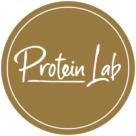When it comes to optimizing athletic performance, the importance of nutrition cannot be overstated. Among the various nutrients that athletes need, two stand out for their critical roles: hydration and protein. While they may serve different purposes, their combined impact can significantly enhance performance, recovery, and overall health.
Understanding the Importance of Hydration
Water is the most essential nutrient for athletes. It makes up a substantial portion of our body, and staying hydrated is vital for maintaining performance levels. Even mild dehydration can impair athletic ability, leading to fatigue, reduced coordination, and an increased risk of injury.
- Fluid Balance: The body loses water through sweat, urine, and breathing. It is crucial to replenish these losses to maintain fluid balance. Studies show that a loss of just 2% of body weight through sweat can significantly impact performance.
- Temperature Regulation: Hydration plays a key role in regulating body temperature. During intense workouts or competitions, the body generates heat, and sweat helps cool it down. Inadequate hydration can hinder this process, increasing the risk of overheating.
- Muscle Function: Proper hydration is necessary for muscle function. Water aids in nutrient transport and helps muscles contract and relax efficiently. When dehydrated, athletes may experience muscle cramps, which can lead to decreased performance.
The Role of Protein in Athletic Performance
Protein is another crucial nutrient for athletes, serving as the building block for muscles, tissues, and enzymes. Consuming adequate protein supports muscle repair and recovery, particularly after intense training sessions.
- Muscle Repair and Growth: After a workout, the body undergoes a process called muscle protein synthesis, where damaged muscle fibers are repaired and new muscle tissue is built. Protein intake after exercise is essential for maximizing this process, helping to promote muscle growth and recovery.
- Sustaining Energy: While carbohydrates are often regarded as the primary source of energy for athletes, protein can also play a role, particularly in endurance sports. Consuming protein before or during prolonged exercise can help sustain energy levels and delay fatigue.
- Immune Support: Regular intense training can put stress on the immune system, making athletes more susceptible to illness. Adequate protein intake supports immune function, helping athletes stay healthy and perform at their best.
The Synergy of Hydration and Protein
While hydration and protein each play significant roles in athletic performance, their synergy is often overlooked. Proper hydration can enhance protein utilization in the body, and vice versa.
- Maximizing Protein Absorption: Staying well-hydrated improves kidney function, which helps the body effectively filter and utilize nutrients, including protein. Conversely, a well-hydrated body can better absorb amino acids from protein sources, optimizing muscle repair and growth.
- Maintaining Endurance: When engaged in prolonged physical activity, dehydration can lead to decreased endurance and strength, overshadowing the benefits of protein intake. Ensuring adequate hydration before, during, and after exercise can help maximize the benefits of protein consumption.
Practical Tips for Athletes
To optimize hydration and protein intake for enhanced athletic performance, consider the following strategies:
- Prioritize Hydration: Aim to drink water consistently throughout the day, not just during workouts. For intense training sessions, consider electrolyte-rich drinks to replenish lost minerals.
- Incorporate Protein in Your Meals: Include high-quality protein sources in your diet, such as lean meats, dairy, eggs, legumes, and plant-based proteins. Aim for a protein-rich meal or snack within 30 minutes after exercise to support recovery.
- Experiment with Timing: While daily protein intake is crucial, timing can also play a role in maximizing performance. Consuming protein both pre- and post-workout can enhance muscle recovery and energy levels.
- Listen to Your Body: Each athlete is unique, so it’s important to pay attention to your body’s hydration and protein needs. Monitor your urine color to gauge hydration levels—light yellow indicates proper hydration, while dark yellow may suggest dehydration.
- Hydration-Protein Combinations: Consider incorporating protein shakes or smoothies that combine hydration with protein post-workout. Brands like ProteinLab offer convenient options that can help you meet your protein needs while staying hydrated.
Final Thoughts
Hydration and protein are vital components of any athlete’s nutrition strategy. By prioritizing both, you can enhance your performance, improve recovery, and maintain optimal health. Remember that while training hard is essential, nourishing your body with adequate hydration and protein is equally important for achieving your athletic goals. Whether you’re a professional athlete or an everyday fitness enthusiast, understanding the synergy between these two elements can make all the difference in your performance journey.

